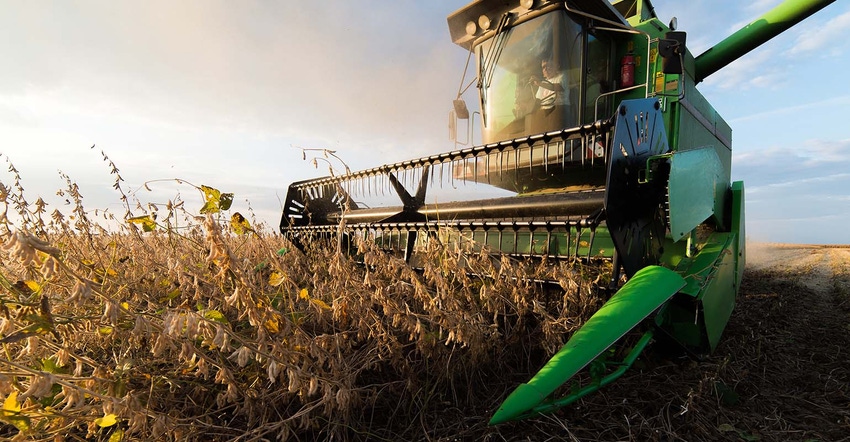
Sitting high up in my John Deere combine this fall, I worked through acres of corn and soybeans at a rapid pace for seven weeks, only then to question myself: Why haven’t I “solved” farming after seven years of being back on the farm?
But for farmers, that’s just what we do. Year after year, we plant the same seeds and spend harvesttime trying to win a race to get our crops out faster than the neighbors. Harvest is on autopilot; nothing else matters other than getting it done. Once harvest is complete, we come up for air and try to figure out what happened.
Before farming full time, I always had my pulse on the agriculture industry, or so I thought. I studied agriculture in college and worked several jobs in the industry. I thought that farming was another project I would master.
I had it all figured out — that was, until I moved back to the farm.
The decisions I make on our farm have proven more difficult than creating a farm budget in my senior farm management class and sticking to it, more stressful than marketing grain in a computer simulator my junior year, and more calculated now that I am buying crop insurance instead of selling it.
Farming evolves over time
Farming isn’t static but a dynamic living organism that evolves over time. Although I haven’t solved the “farming problem” in my hypothetical classroom, I have learned practices that have given me answers along the way:
Form relationships. Every business book has the cliché statement that relationships are the key to success, but it makes sense. I don’t want to do business with someone that follows up with me once a year, but someone who has a vested interest in my success. The same can be said for my hay customers. I wonder if I provide the service they deserve, and even questioning myself out loud tells me I need to do a better job of helping my customers succeed.
Try something new. Keep an open mind. Don’t get stuck in doing things a certain way. There’s not one recipe to be successful; there are several ways to produce and sell a product.
Be organized. A simple tool like a year-end financial statement works wonders at a banker meeting.
Organization is key for financial records and business structure. Our structure wasn’t necessarily a train wreck, but it wasn’t the right structure for our succession plan goals. Now we have a plan in place to transition the business.
Be consistent in all areas. We feed cattle, and a tenth-of-a-pound change in rate of gain can change our profits from black to red. The details are important. When it comes to the hay business, we must produce a consistent product, or we will lose business. Consistency isn’t glamorous, but it keeps us in business.
Manage money. Corn prices are half what they were when I started farming. It was easy to not only pencil a profit back then, but also spend extra money. Managing money is challenging, but in a weird way, I’m glad I saw both boom and bust in my early years of farming. I understand that what goes up also comes down.
I’ve conceded that I’ll never actually solve the “farming problem.” It really isn’t a problem that can be solved. After next harvest, I will have more questions than I did this year. There will be different problems, prices and goals. But I will have the confidence that certain practices can help me continue doing what I love for another season.
Cox farms with father Ethan in White Hall, Ill.
The opinions of the author are not necessarily those of Farm Futures or Farm Progress.
About the Author(s)
You May Also Like






